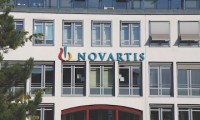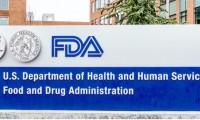-
With More 2024 FDA Filings Planned, Novartis Drug Starts Showing Blockbuster Potential
- Source: drugdu
- 105
- December 13, 2023
-
Vanda expands commercial presence with $100M deal for US rights to J&J multiple sclerosis drug
- Source: drugdu
- 96
- December 11, 2023
-
IGM jettisons workforce and blood cancer programme to refocus pipeline
- Source: drugdu
- 101
- December 8, 2023
-
Novartis’ Fabhalta approved by FDA as first oral monotherapy for rare blood disease PNH
- Source: drugdu
- 105
- December 8, 2023
-
EC approves UCB’s Zilbrysq as generalised myasthenia gravis add-on therapy
- Source: drugdu
- 102
- December 7, 2023
-
Rising Cost of New Medications, Will the People Who Need Them Most be able to Afford them?
- Source: drugdu
- 100
- December 5, 2023
-
Eli Lilly and PRISM BioLab enter drug discovery collaboration worth over $660m
- Source: drugdu
- 106
- December 5, 2023
-
FDA to investigate risk of T-cell malignancy from CAR-T cell immunotherapies
- Source: drugdu
- 107
- December 4, 2023
-
Boehringer Ingelheim and IBM announce AI antibody drug discovery partnership
- Source: drugdu
- 110
- December 4, 2023
-
Generation bio cuts 40% of staff in blow for non-viral gene therapy sector
- Source: drugdu
- 98
- December 4, 2023
your submission has already been received.
OK
Subscribe
Please enter a valid Email address!
Submit
The most relevant industry news & insight will be sent to you every two weeks.













